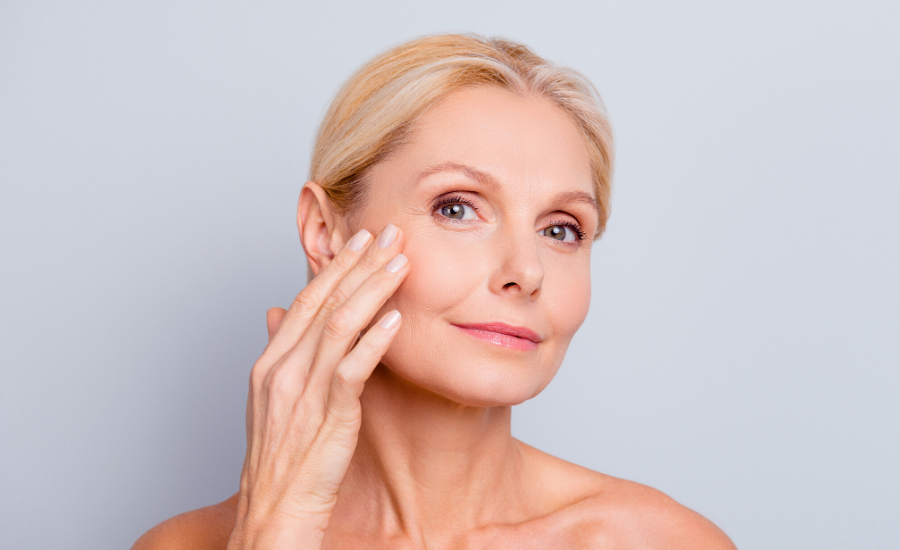SkinVive by Juvéderm is an injectable treatment that plumps and hydrates your skin with no downtime! It’s like injecting a powerful moisturizer or serum but with long-lasting results. It helps improve skin texture, elasticity and hydration to restore your healthy glow.
How does SkinVive work?
Hyaluronic acid (HA) naturally occurs in our bodies but decreases as we age, contributing to loss of elasticity and smoothness in our skin. The hyaluronic acid contained in SkinVive can hold up to 1000 times its weight in water. It’s administered using tiny, multiple injections into the middle layers of your skin where it slowly disperses, drawing and holding water to help improve the smoothness, hydration and elasticity of your skin.
How long does SkinVive last?
Just one SkinVive treatment helps provide dermal hydration for up to nine months, making it a popular choice for people seeking long-lasting results without multiple visits.
How is SkinVive different from other hyaluronic acid fillers?
Other fillers also use hyaluronic acid to fill wrinkles and restore volume in specific areas. SkinVive is designed to spread within the skin rather than staying in a specific place. As a result, it boosts and plumps the skin to increase hydration, not volume.
What areas can be treated with SkinVive?
SkinVive can be used on the face, neck and décolletage to target fine lines and help improve your skin. And it’s safe for all ages and skin types.
I get Botox and fillers. Can I still get SkinVive?
Absolutely! SkinVive provides hydration to your skin and will help restore elasticity and plumpness. Botox and fillers provide other aspects of skin rejuvenation. To determine the best treatments to achieve our desired results, I recommend reserving a personal consultation to review your skin concerns.
Is there any downtime after SkinVive treatments?
There is no downtime following your SkinVive treatment, though as with any injectable treatment, you may experience some light bruising after your treatment.
To help reduce your risk of bruising from any injectable treatment, our INLIV team recommends following these tips.

Dr. Ingemaud Gerber
Originally from South Africa, Dr. Gerber received her medical degree from University of Stellenbosch. She worked in rural medicine in Grande Cache before moving to Calgary where she began as a family practitioner at Foothills Hospital, and continues to practice there several days a month. At INLIV, she works as a physician within the Total Health Management program and as a physician injector in Medical Aesthetics.
Dr. Inge is busy leading her young family on adventures during her spare time, and enjoys hiking, trail running, snowboarding and skiing. Learn More


